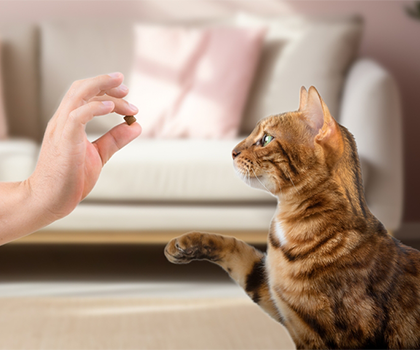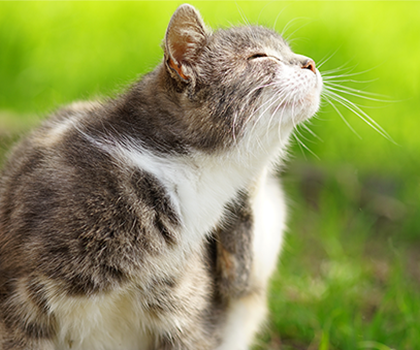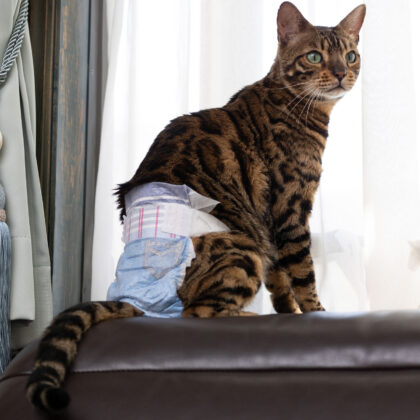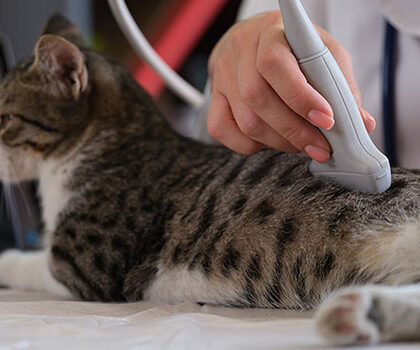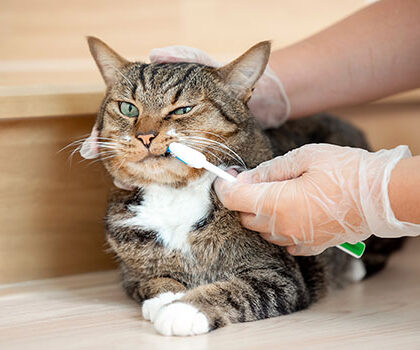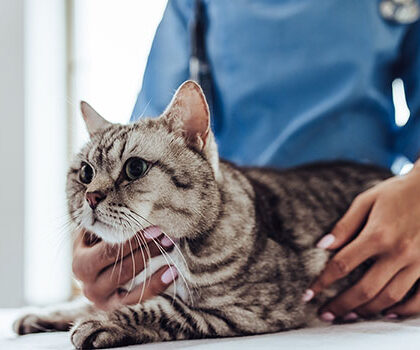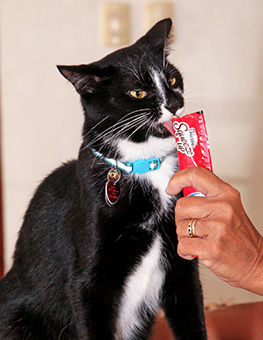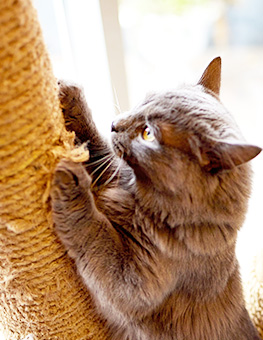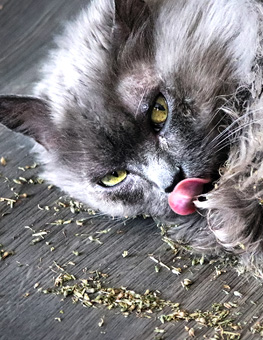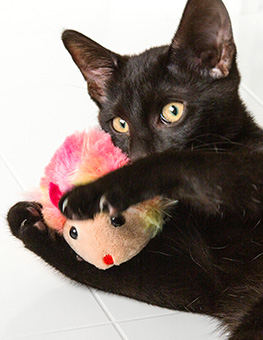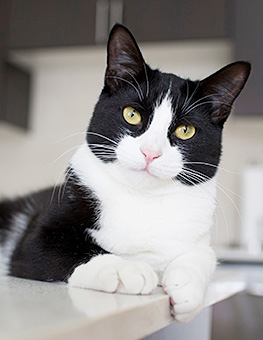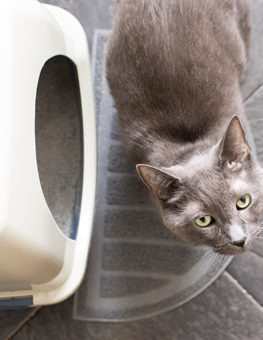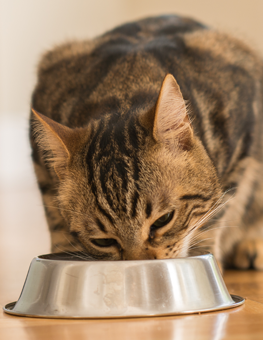Does My Cat Have Separation Anxiety
Separation anxiety is a very real problem for many cats and dogs these days. Our pets are very sensitive to change, so it’s no wonder that they may struggle when we leave if they are used to us being at home most of the time.

Cats rely on their humans to feel happy and secure.
With many of us headed back to work and school, going on vacations, and spending more time out with friends, separation anxiety is becoming more prevalent. Believe it or not, cats struggle with these changes just as much as dogs. Despite being traditionally labeled as solitary and independent, our cats rely on our company to feel happy and secure just as much as dogs do. Fortunately, there are many tried-and-true ways to help our cats adjust to spending more time on their own.
Separation Anxiety or Isolation Distress?
What is separation anxiety, anyway? A cat suffering from separation anxiety becomes attached to one specific person and experiences distress when they are separated from each other. If the cat simply cannot be left completely alone and does okay when accompanied by any person, it would be more accurate to say that the cat suffers from isolation distress. There are varying degrees of separation anxiety and isolation distress, ranging from mild signs of distress like not eating while the person is gone to severe signs like inappropriate elimination, vomiting, and obsessive self-grooming.
Signs and Symptoms of Separation Anxiety in Cats
- Excessive vocalizing. This could be meowing, yowling, crying, or wailing. It could be when you’re in another room of the house and your cat can’t find you. Or, you may hear from your neighbors that they could hear him screaming through the walls all day while you were at work. Excessive meowing in other contexts outside of when your cat is alone could also be a sign of a medical issue.
- Litter box accidents. If you go away for the weekend and return to a big wet spot on your bed, it’s not because your cat was mad at you for leaving. Urinating on your things is a sign that your cat is stressed. Because your bed smells heavily like you, urinating on it is an attempt from your cat to seek comfort and mix his scent with yours. Cats rely heavily on scent, and urine marking could also be his attempt to help you “smell your way home” to him. Always get your cat checked out by a vet if litter box accidents persist.
- Change in eating habits. Does your cat immediately run to the food bowl when you get home and scarf everything down? Will he only eat in your presence? Have you noticed frequent piles of vomit when you get home? These are all signs that your cat could have separation anxiety.

One sign of anxiety in cats may be their constant need to be near you.
- Destructive behavior. If your house is being torn up while you’re gone, anxiety is likely a factor. This could be anything from scratch marks on your doors and windows, to your things being knocked over. It could also be self-destructive behavior, such as if your cat pulls out his own hair or excessively licks himself until he begins to bald.
- Hyper-attachment to you. If you can’t go to the bathroom alone or if your cat constantly needs to be near you to the point of trying to follow you out the door, it may be a sign of anxiety. It’s important to be able to distinguish between hyper-attachment behaviors and your cat just enjoying your company, however. Look for signs that your cat is distressed if he can’t be in the same room without you or touching you.
Ways to Resolve Separation Anxiety in Cats
- Provide enrichment. Although they thrive on a predictable routine, your cat will enjoy you shaking things up a little bit in terms of adding new things for him to play with and investigate on a regular basis. Be sure to carve out time every day to spend playing with your cat. When you’re away, leave your cat something fun and exciting to do. This can be a food puzzle, a cardboard box with some catnip inside, or a brand-new toy brought out right before you leave for the day. You can fill up your bathtub with ping pong balls, hide treats around your house, or leave nature videos playing on your TV. The more stuff your cat has to do while you’re gone, the less time he’ll be spending missing you!
- Keep leaving and returning low-key. We all miss our pets when we’re away, but if you make it a big deal when you’re coming and going, your cat will think it’s a big deal, too. Try to avoid any long, drawn-out goodbyes or super enthusiastic greetings. You may also want to work on switching up your routine for leaving. For example, if you always put on your shoes as the last thing that you do right before you leave the house, that becomes a predictor to your cat that it’s time to start stressing out. Try putting on your shoes, then going upstairs to brush your teeth, and then making yourself some coffee, and then leaving. Over time, your cat will learn that you putting on your shoes isn’t necessarily a bad thing and it will prevent him from getting worked up before you leave.
- Gradually increase the length of absences. This isn’t always practical for everyone, but if you can, start practicing short departures before you build up to longer ones. Go through your regular routine of getting ready to leave the house, then just step outside and come right back in. If your cat is fine with that, try going for a quick walk around the block and coming right back. Then, try running out to the store for 15 minutes. The more you practice, your cat will become used to you leaving over time and will learn that you always come back to him!

Consider having a pet sitter drop in mid-day to keep your cat company.
- Create a consistent routine. If it’s at all possible, try to work the same hours every day. Cats do have an internal clock, and if they know that you always leave at 8:30 in the morning and always come home at 5:30 in the evening, it will be easier on them to cope as they can predict when you’ll be back. Feeding and playing with your cat at around the same time every day can help lower his stress, too.
- Consider a sitter. If your cat’s separation anxiety is affecting his quality of life, consider having a pet sitter drop in mid-day to keep him company and spend some time playing with him. This is a good way to determine if he has separation anxiety or isolation distress.
- Behavior medication. In extreme cases, you may want to discuss anxiety medication with your veterinarian. Medication can help keep your cat calm when you’re away and decrease some of those unwanted behaviors like accidents outside of the litter box and excessive meowing. Your vet can help you decide if medication is the right choice for your cat.
In some situations, getting your cat another feline friend may help with separation anxiety, but it is generally not recommended. Adopting two cats or kittens at the same time is a good way to prevent separation anxiety, but adding a second cat to a household where the first cat already suffers from separation anxiety can be hit or miss. You run the risk of the two cats not getting along and increasing the amount of anxiety in the home rather than decreasing it. Be cautious when making this decision. A good rule of thumb is to always adopt a new cat because you want a new cat – not because you want your cat to have a new cat.
Always be sure to discuss any major change in behavior with your veterinarian and consider working with a certified cat trainer or behavior consultant if your cat’s separation anxiety does not resolve with these tips.




